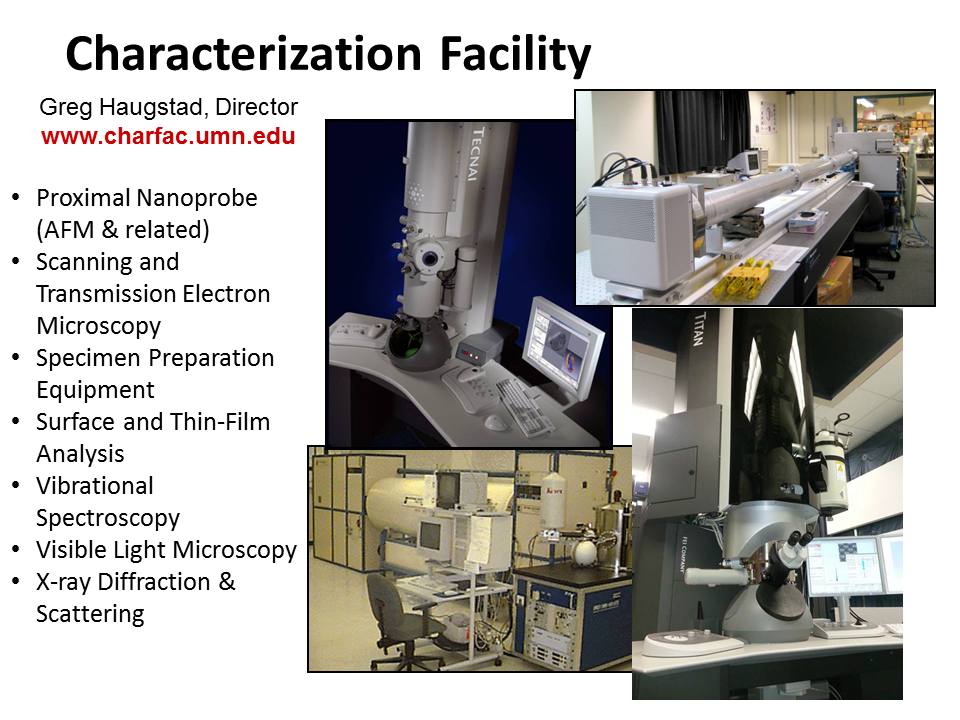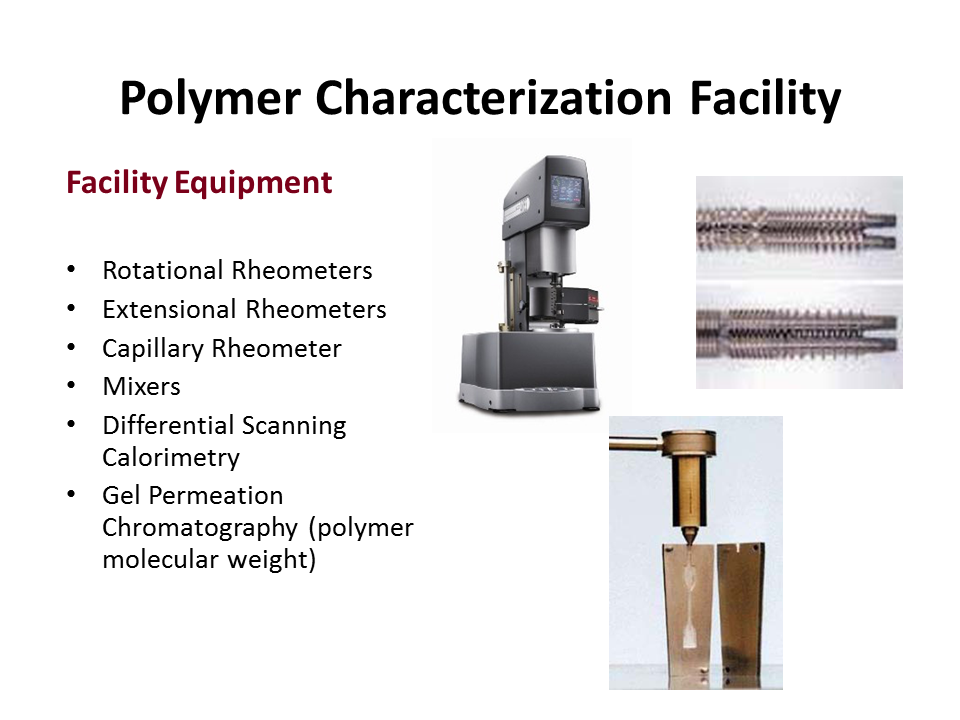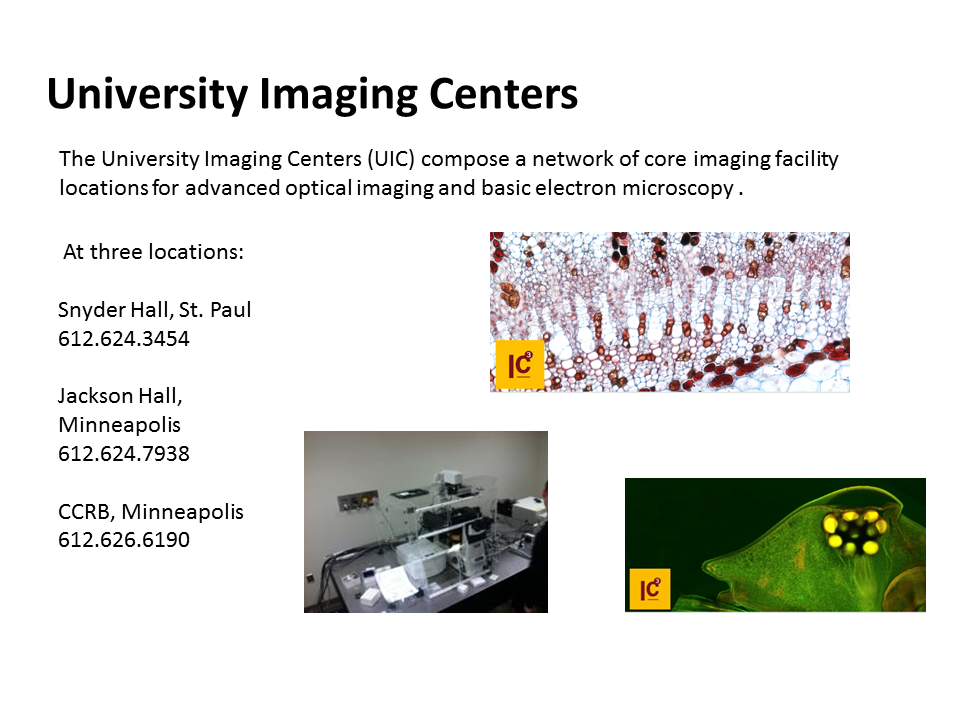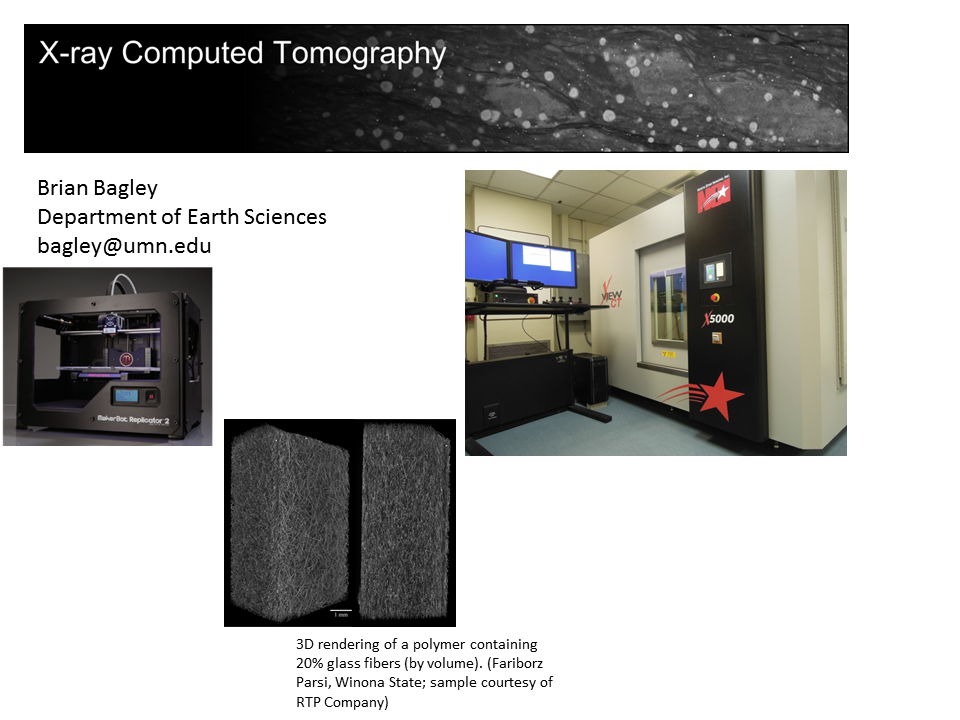Supporting Facilities
Supporting Facilities
IPRIME members have access to instrument use and/or analysis services through research conducted at the following supporting facilities.
IPRIME works within seven research partnership programs. Several of these programs also receive support from the National Science Foundation via the University’s Materials Research Science and Engineering Center (MRSEC).
Reduced rates are available to members at these 5 facilities:
Characterization Facility
CharFac provides characterization of organic and inorganic solids, polymers, and interfaces. Specialists assist users and help them interpret results. Training is available to allow users direct access to instruments.
Industry Interaction Categories
Polymer Characterization Facility
Contains state-of-the-art rheometry equipment and expertise support characterization of polymeric and other complex materials.
Coating Process and Visualization Lab
Specialized facilities and expertise support visualization of coating processes.
University Imaging Center
The centers provide scanning and transmission electron microscopy including x-ray elemental analysis capabilities (EDAX), (hyper-spectral) fluorescence microscopy, laser scanning confocal microscopy with particular expertise in imaging living biological specimens.
X-Ray Computed Tomography
An Earth Sciences Dept facility offering a X5000 high-resolution dual head 225 kV microfocus X-ray system that provides sub-micron detail recognition.
Tissue Mechanics Lab
Provides instruments and expertise to measure the mechanical properties of soft tissues and other biological materials.
Additional Facilities
AeroCore Inhalation Testing Research Service Facility
Provides aerosol/vapor exposures to rodent animal models for the purpose of testing the safety and efficacy of inhaled materials.
BioTechnology Resource Center (Division of the BioTechnology Institute)
Fermentation process development and scale-up ranging from 5L to 450L, downstream processing (centrifugation, cell breakage, tangential flow filtration, chromatography), recombinant protein expression and purification
High-throughput Biological Analysis Facility
(HTBA Division of the BioTechnology Institute)
LeClaire-Dow Instrumentation Facility (LDIF) NMR lab — MS lab —X-Ray Lab
The LDIF is supported by generous contributions from Dow Chemical Company, this is a centralized facility for U of MN and outside users. It provides access to state-of-the-art instrumentation for mass spectrometry, NMR spectrometry, and X-ray crystallography
Minnesota Nano Center The Minnesota Nano Center, or MNC, is a state-of-the-art facility for interdisciplinary research in nanoscience and applied nanotechnology. The Center offers a comprehensive set of tools to help researchers develop new micro- and nanoscale devices, such as integrated circuits, advanced sensors, microelectromechanical systems (MEMS), and microfluidic systems. The MNC is also equipped to support nanotechnology research that spans many science and engineering fields, allowing advances in areas as diverse as cell biology, high performance materials, and biomedical device engineering.
Additional Resources
TechComm
Office for Technology Commercialization
At the Office for Technology Commercialization (OTC), we help University research move beyond the lab and into the marketplace.
Our mission includes:
- Connecting faculty with companies
- Licensing technology for the development of new products and services that benefit the public good
- Fostering economic growth
- Generating revenue that supports the University’s research and education goals
MnTap
Minnesota Technical Assistance Program
The Minnesota Technical Assistance Program (MnTAP) is an outreach program at the University of Minnesota that helps Minnesota businesses develop and implement industry-tailored solutions that prevent pollution at the source, maximize efficient use of resources, and reduce energy use and costs to improve public health and the environment.
Experts at Minnesota
Profile database, which focuses primarily on journals in the biological, medical, physical, social, and engineering sciences (the database also indexes journals in the arts & humanities, the majority of which start in 2002).



